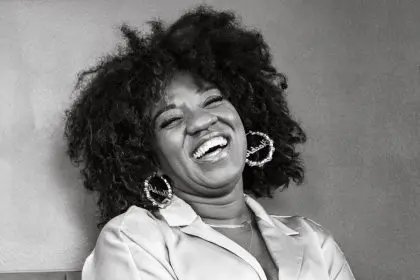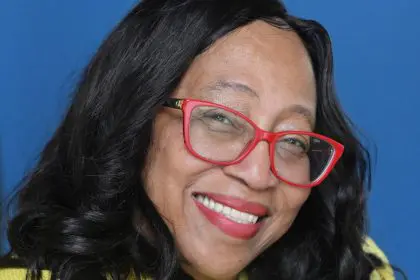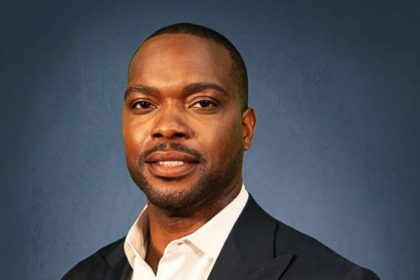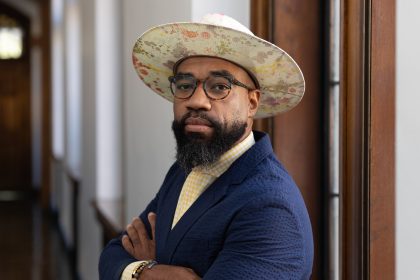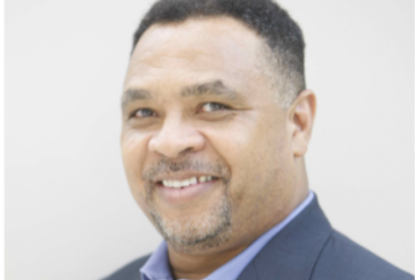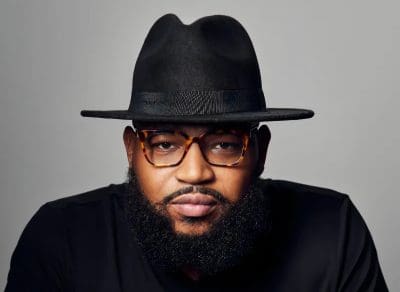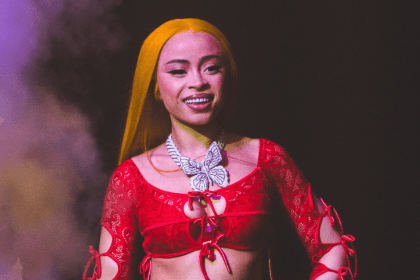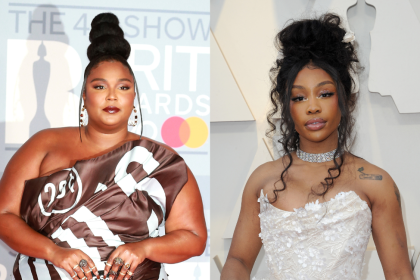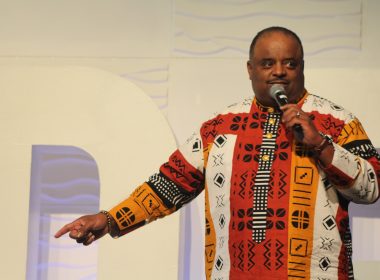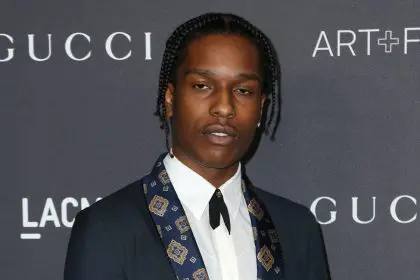Community leader and entrepreneur Houston White is a creative visionary who brings people, cultures and communities together to elevate one another. Houston is invested in creating a better world, particularly for the Black community, and regularly collaborates with local government officials and business leaders to increase racial equity. The driving force behind his work over the past two decades has been to inspire a renaissance of optimism and action with and for people who believe in vibrant Black futures.
The Houston White brand of apparel and accessories was born to foster a community of people who see strength in cultural collision, who recognize that our differences make us dope, who lead with style, swagger and heart. White design collections for Target that celebrate unique perspectives and remind all to live their best life with style.
What made you know that you’re a super entrepreneur?
My family. I was born in Jackson, Mississippi. My grandmother is bookended at the same end of the street, probably a football field from each other. My dad’s dad was a small engine repair person. He owned the only tow truck in the community. My mom’s father was a sugarcane farmer, so I saw them doing it for themselves and I grew up saying that’s what I wanted to do. My grandfather gifted me a lawn mower when I was about seven, and I took that loan mower and hired all my cousins. I paid them in candy. It was seeing my family do for themselves that made me do the same thing. Obviously, growing up in the 80s, with the emergence of street culture and hip hop, and seeing the power at that time, our social media was a haircut, a fly outfit, and the ability to do commerce. I learned all these things and grew up in an era where I was I was still connected to my grandfather, but had those modern sensibilities and just blended them together. The confidence that they instilled in me [made me ask] “Why the hell not me?”
Why did you start your business in Mississippi?
When I originally came here it was because of my mother and father. They separated, and my aunt who was the matriarch of the family, came here. She told her little sister this is the best place to start over with your children, so we came and moved in with my aunt. I went back to the city every summer too, until I was about 17 years old. I realized now that was one of the greatest gifts my mom could have given to me: the courage to get up and try something new which allowed me to be partly raised in the North and the South. All those different things and life experiences were like a big pot of gumbo. I take all those influences and I still use them to this day.
Why did you start your apparel brand?
I started because of Sunday’s best. My grandmother was the first brand I recognized, and she was a millionaire. She made hats. Every Sunday, we would go and there would be the mothers of the church, they’d all sit on the left and the gentlemen to the right were in all black. The mothers of the church were in all white. One of the things that they could flex with was their headwear. I was seeing my grandmother making hats, and I always used to bug out because of the ability she had to build her fabric store. She’d come home, and I would see these hats all over the South. That was my first entry into branding and brand recognition.
When I was in school my older cousins were wearing suits, and Bobby Brown was a fly dude, so I started leaning toward being fly at school. Everybody wanted to look like I wanted to look, and I started selling T-shirts. I believe that style is a nonverbal form of communication, you say everything about yourself, how you live, and how you carry yourself. As I got older, I wanted to use the power of streetwear to make statements. And one of those statements in 2014 I wanted to make was this Black excellence. I worked and created a logo and eventually, we got on the radar of JC Penney and ended up doing a Black history capsule. I could do much more than T-shirts so I started selling suits and different things in the barbershop. We would sell out, and then I got on the radar of Target.
What would you tell young people to be prepared for when working with a brand?
Be prepared. Understand your why and be uncompromising in that. Authenticity is key. My favorite quote is we’re all influenced by everybody, you’ve just got to bring it all down in the way you feel it. Know that it’s really you because that is something that can’t be copied because it’s critical in this day of age. Corporations are looking for people and brands that they can’t just create themselves.
What guides your thinking as a CEO?
I think that humility is the price of entrance. Knowing that every day you want to go to bed a little bit smarter, whether that is feedback from somebody, or whether that is drinking coffee with someone who’s had a good and/or bad experience. One should always remain nimble, humble, and a lifelong learner, because then you’re always improving and curious. I’m that curious youngster that just wants to gobble up information and figure out a way interactively to create the format and put it back in the world as something new that can be profitable for myself.
How do you use curiosity as a tool?
I have a really good relationship with Brian Cornell, who is the CEO of the Target Corporation. The way our relationship came to be, I started asking him questions about his life, not “What is it like running a $100 billion corporation?” I ask him how did he grow up and what did he eat for breakfast. Because we started talking about personal things, now the relationship forms, and you get to know the man. The man now becomes somebody who sees you as somebody who’s curious and that would be a really good partner. Beyond the transactional nature of the partnership could also be someone who could share information with team members. Through building these authentic relationships, you create richer, deeper, vendor relationships, that ultimately become more profitable.
Why is scaling important?
You think about McDonald’s. Once you’ve mastered the french fry you need to now figure out how to duplicate it, because if you like it on Monday, you’re going to like it on Friday. The goal of the business is to figure out how to make it consistent and in a timely manner. I’ve seen a lot of my family members and grandmas’ cooking cakes. Grandma could make maybe five or six cakes a night but what if she could find a way to have 1,000 cakes made a night? I want as many people to hear it’s possible because that gets more notoriety and makes it more profitable, and hopefully, there’s a platform where we can create other things and ultimately it leads to generational wealth.
How do you build relationships with banks as a CEO?
The revolution must be financed. It takes money to do anything in this world. The reality is that all money is debt, even the money you got laying under your mattress. Banks are in the risk business. They want to give you $1,000, and they want you to have a 5% interest rate on that money. As long as you’re doing well, you can continue to borrow bigger sums of money. I have several friends that are bankers and the reality is that banks need culture, not just cultural figures that were once athletes, not just cultural figures that are rappers, I’m talking about people like myself who literally got it out of the mud. We are a good credit risk. But you got to build a relationship so you understand what they need. Those two things come together.
What does it feel like for you to give someone a job?
It’s an honor. Beyond just a job, the ability to learn to do commerce, and to take pride in that commerce, and that those lessons that they’re learning, the soft skills, and take pride in it – and then see in that direct feedback loop from the customer, that builds confidence. For me giving a job is really giving a manual as well as it is giving a means to make a living or pay for one’s living, but I see it as that training tool that builds self-confidence. It’s critical for us to restore order in our community. I come from very prideful people who taught hard lessons, but those lessons in love have allowed me to do everything that I do to this day, and so I want to keep passing on that on in personal and professional excellence.

